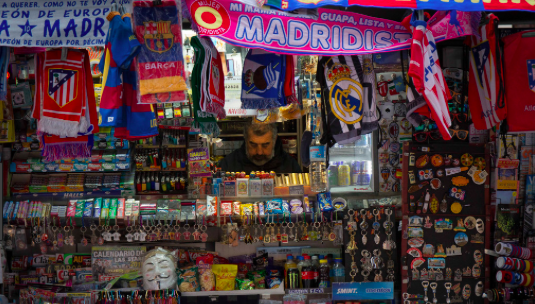Table of Contents
The highly anticipated World Cup set in November could generate billions of revenues in Singapore alone and in many participating countries, especially in the industry of tourism, merchandise, food, and more.
However, for countries who failed to be included in the 32 qualified teams like Nigeria and Colombia, these World Cup eliminations had an adverse effect on small businesses.
Effects of qualification failure
William Abella, a food vendor in Colombia, had been relying on the 2022 World Cup in Qatar to bring back his financial losses because of the Covid-19 pandemic.
When the Colombian national team was playing, his tiny retail store and food stand in the city of Bogota typically swarmed with fans dressed in yellow shirts. The supporters of the national football team wearing the colors of their uniform congregate at Abella’s stand to drink and talk, which would cause the beer sales of his stand to rise up to 80 percent.
However, just like a lot of small entrepreneurs in footballing nations that surprisingly failed to qualify, his anticipation to boost his business from supporters who are bolstering the national team turned into frustration.
Even those who are sport punters themselves looking forward to extending their support know how it can be quite disappointing. Singapore fans have been dealing with such disappointment for so many years now, but on the brighter note, they have never lost their love for the sport altogether.
According to 65-year-old Abella, he stated: “Now that the Colombian national team will not participate in the World Cup 2022 anymore, I know that the sales of my beer will be reduced to half.”

A huge business
The FIFA World Cup in Qatar, which will launch in November, is a huge enterprise, a lot of money will be spent on tourism, dining, and retail. However, as businesses around the world prepare to rip the benefits of the football event, Singapore and other developing nations which are known for their football talents but failed to qualify will expect huge losses.
The street traders in Colombia, retailers in Algeria, proprietors of football viewing spaces in Nigeria, these tiny business owners, and informal laborers who depend on tax-free incomes during the football games were afraid of a huge decrease in revenue.
Economic loss
Nigeria is a country with the largest population in Africa and is home to people who are very passionate about football. David Anomweh, an owner of a sportswear store in the country’s capital Lagos is also expecting a loss in income.
The country was a favorite contender in the tournament and had appeared in the previous editions of the FIFA worldcup22. However, fans were shocked when Nigeria was defeated by rival Ghana and failed to qualify for the World Cup.
“My father already reserved 50 jerseys with Nigerian team colors with the hope to sell them once Nigeria qualified for the 32 teams. However, now that Nigeria lost, these jerseys were totally worthless in the market. What is painful is that we spent 250,000 Naira which is equivalent to 837 Singaporean dollars for this,” said Anomweh, the owner of Ugo Ways Sports in Lagos, Nigeria.
The proprietors of the viewing halls in Nigeria also complained about the losses due to the elimination of their national team in the tournament. These viewing halls are huge spaces that have screens similar to a movie theater where people pay a price to watch football games.
“People watch the games of the Nigerian national team more than the games of Nigerian football clubs. Now that Nigeria failed to qualify, I will not make money because people don’t usually watch other teams,” said Jide Joseph, owner of a viewing hall in Lagos.
In Algeria, Mohamad Bachouch also lost income when Algeria lost in the World Cup qualifiers. He is an owner of a retail shop in Algiers that sells memorabilia goods such as flags, shirts, and mugs with the symbols of the national team.
Conclusion
It is clear that the qualified nations enjoy an unprecedented success both in representing their country but also a boost in the economy. However, for those who have lost, this would mean an economic loss too.
But the hope is not completely lost for nations like Singapore, real football fans prove time and time again how incredibly passionate they all are in showing their love and support for their favorite teams.


